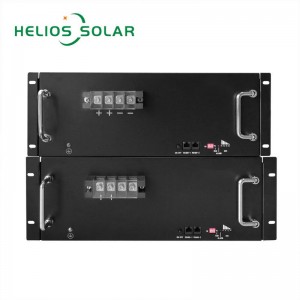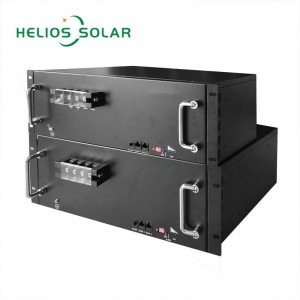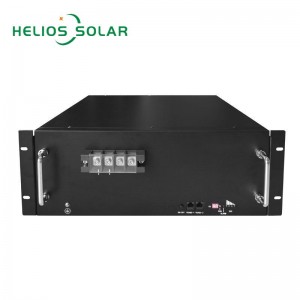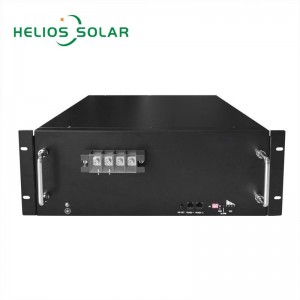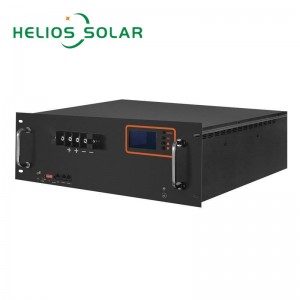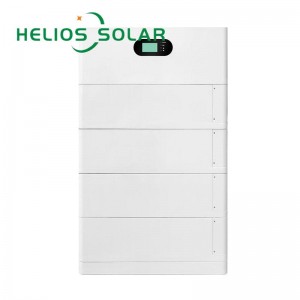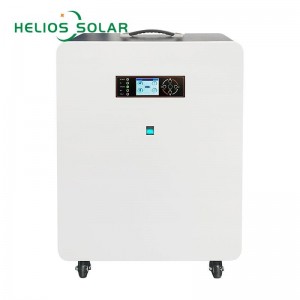
GBP-L1 Rack-Mount Lithium Iron Phosphate Battery
Product introduction
This product is composed of high-quality lithium ironphosphate cells (by series and parallel) and advancedBMS management system. t can be used as anindependent DC power supply or as a "basic unit" to forma variety of energy storage lithium battery powersystems. High reliability and longer life. lt can be used asbackup power supply of communication base station,backup power supply of digital center, household energystorage power supply, industrial energy storage powersupply, etc. It can be seamlessly connected with mainequipment such as UPS and photovoltaic powergeneration.
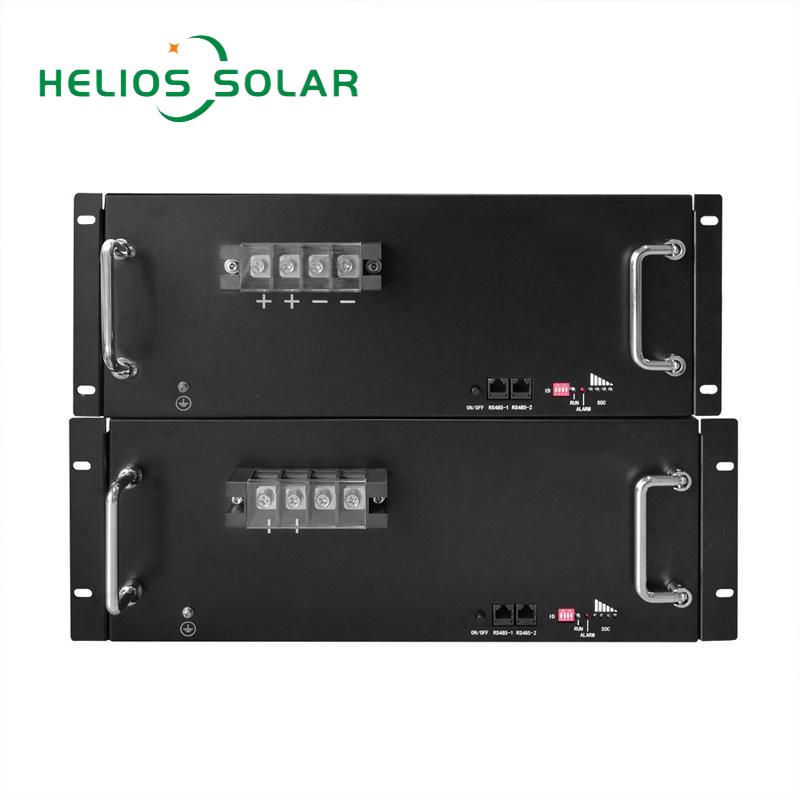
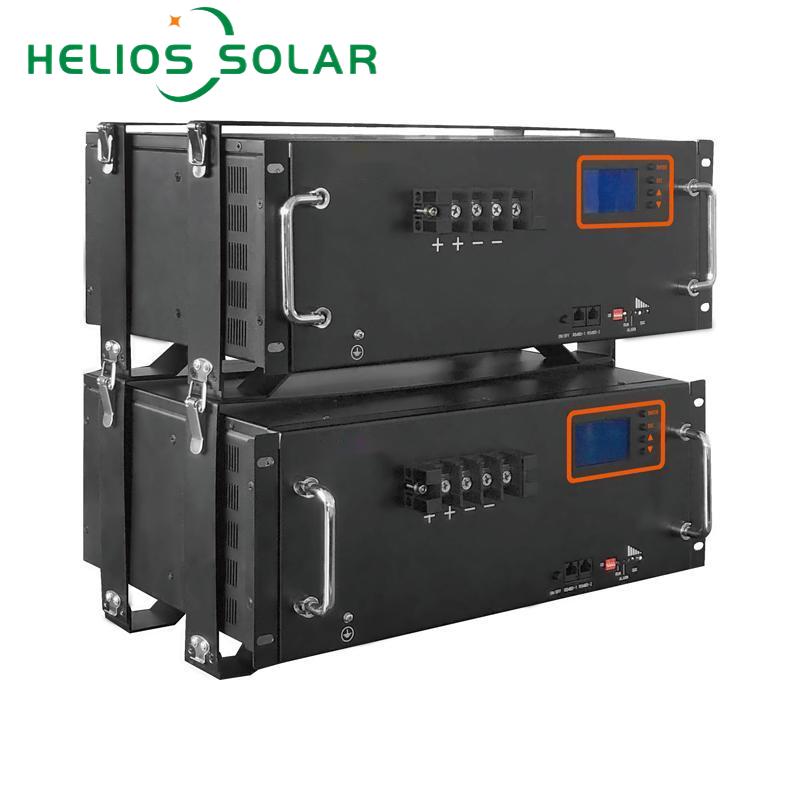
Performance Characteristics
* Small size and light weight
* Maintenance-free
* Standard cycle life is more than 5000 times
* Accurately estimate the state of charge of the battery pack, thatis,the remaining power of the battery, to ensure that the powerof the battery pack is maintained within a reasonable range
* Multiple in parallel, easy for expand
* Easy for installation and maintenance
Technical Parameters
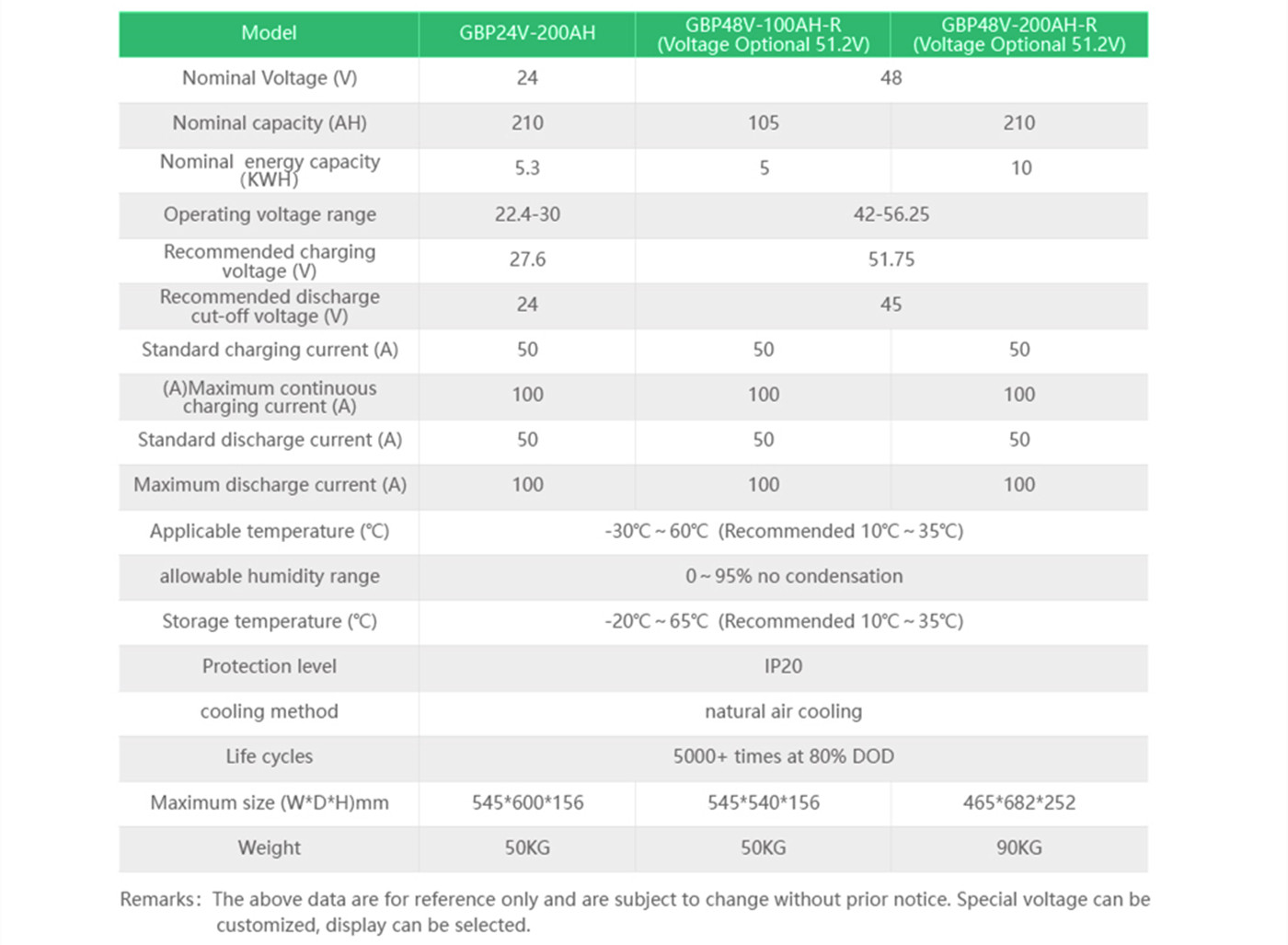
Project

Why Choose Our Lithium Iron Phosphate Battery?
Q: What is a lithium iron phosphate battery?
A: A Lithium Iron Phosphate (LiFePO4) battery is a rechargeable battery commonly used in a variety of applications such as electric vehicles, solar systems, portable electronics, and more. It is known for its high energy density, long cycle life, and excellent thermal stability.
Q: What are the advantages of lithium iron phosphate batteries?
A: There are several advantages to using lithium iron phosphate batteries. First, it has a longer lifespan than other types of lithium-ion batteries, with a typical cycle life of about 2,000 to 5,000 cycles. Second, it is more thermally stable, which means it is safer and less prone to thermal runaway. Additionally, LiFePO4 batteries have a high energy density, allowing them to store more electricity in a compact size. They also have low self-discharge rates and are environmentally friendly because they are free of toxic metals.
Q: Are lithium iron phosphate batteries suitable for renewable energy systems?
Answer: Yes, lithium iron phosphate batteries are very suitable for renewable energy systems. They are commonly used in solar power systems, wind energy storage and off-grid applications. Their high energy density and long cycle life make them ideal for storing and utilizing renewable energy. Additionally, LiFePO4 batteries can handle high charge and discharge rates, making them compatible with the variable power output of renewable energy sources.
Q: Can lithium iron phosphate batteries be used in electric vehicles?
Answer: Yes, lithium iron phosphate batteries are widely used in electric vehicles. Their high energy density, lightweight design and long cycle life make them a popular choice for electric vehicle manufacturers. Lithium iron phosphate batteries can provide the power needed to drive electric vehicles and provide longer driving range than traditional lead-acid batteries. Additionally, their inherent safety features such as thermal stability and reduced risk of thermal runaway make them a solid choice for electric vehicle applications.
Q: Are there any precautions or restrictions when using lithium iron phosphate batteries?
A: While lithium iron phosphate batteries have many advantages, there are a few things to keep in mind. One of its limitations is its low specific energy (energy stored per unit weight) compared to other lithium-ion battery chemistries. This means that a LiFePO4 battery may require a larger physical volume to store the same amount of energy. Also, they have a slightly lower voltage range, which may affect some applications. However, with proper system design and management, these limitations can be overcome and the advantages of LiFePO4 batteries can be fully exploited.


